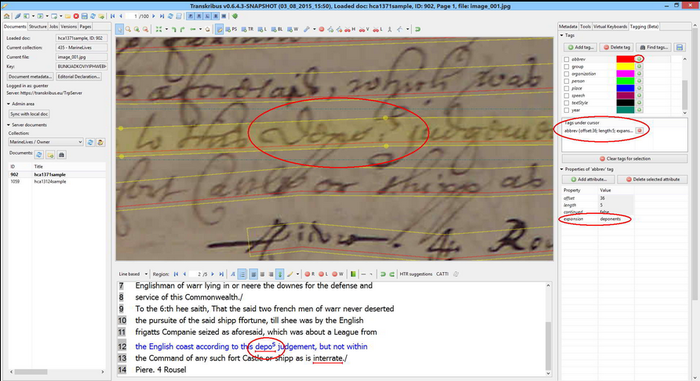Tools: Team One
Team One: working on semi-automated recognition of handwritten manuscripts
Contents
Team summary
We will explore line and text block recognition of legal documents using software tools developed by the Transkribus project. If we can get a Java coder on the team, we will embed the Transkribus tools in the MarineLives wiki. The team will work with C17th records from the English High Court of Admiralty and from the King's Bench. We will explore whether Transkribus tools can be used by volunteers to create metadata for virgin manuscripts for which there are neither existing metadata, keywords, nor full text transcriptions. We are interested in both the software and workflows required to systematise the creation of metadata and keywords to make previously "invisible" manuscript images discoverable.
Transkribus tool set
[ADD DATA]
UK based institutions and individuals testing Transkribus
British Library
- The British Library is testing Transkribus tools using documents from the former India Office Records
- Contact at the British Library is Dr Mia Ridge, Digital Curator, British Library
MarineLives project
- Contact at the MarineLives project is Colin Greenstreet, co-director, MarineLives project
Transcribe Bentham
- Transcribe Bentham is part of the Recognition and Enrichment of Archival Documents (READ) project, funded by the EU, and will be exploring the use of Transkribus tools[1]
- Contact at the Transcribe Bentham project is Dr Louise Seaward
Transkribus trained on High Court of Admiralty data set
[ADD DATA]
